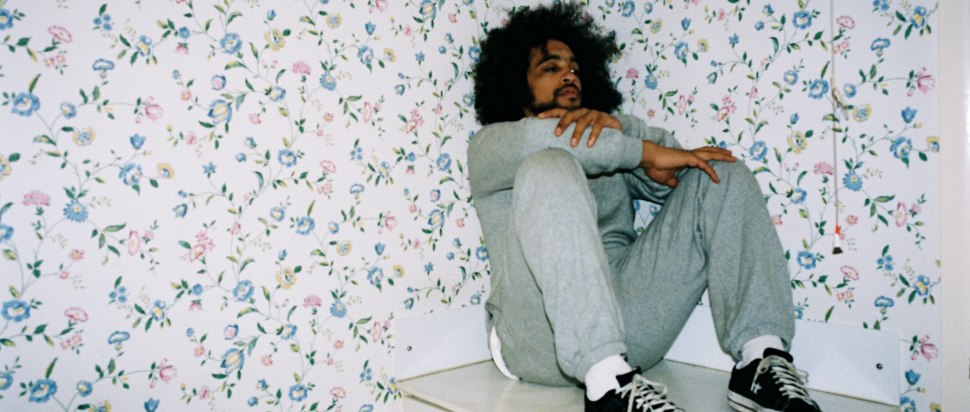Space for Everyone: Wu-Lu on the importance of community
Ahead of his appearance at The Great Western, we speak to Miles Romans-Hopcraft, aka Wu-Lu, about the importance of community in the creation of his music and his audience
Miles Romans-Hopcraft, better known as Wu-Lu, is South London’s own musical factotum. A self-referred "open book", when we chat over Zoom one Monday morning he answers effusively when sharing his experiences. We discuss the role of community in music conceptually, and in what ways – in a contemporary and current sense – there is interplay with the concept of ‘genre’; a conversation that seems particularly appropriate for a stylistic chameleon such as Wu-Lu.
Both in the press and in the wider conversation, the deftness with which Wu-Lu combines facets of such ‘oil and water’ genres – grunge, hip-hop, jazz – is invariably mentioned, as is Romans-Hopcraft as a form of representation of his Brixton community. We enquire as to whether this evolution at an allegro pace – you need only listen to the gulf between 2015’s self-released Ginga and 2022’s Warp Records debut Loggerhead to illustrate this – concerning genre is something he consciously utilises, or whether it is less measured and more organic.
“It definitely is all organic… more of a vibe thing," he tells us. "It can depend on how I’m feeling on the day, on the lyrical content. But the cross-genre stuff comes from, like, DJing and being into a load of different genres of music… and trying to be into turntablism, working out that sort of way of mixing. To kind of bring all the different genres – all the best parts of genres – using the breaks and stuff of different records, in a really short set; it’s like [trying] to do that, in a musical way.”
The sheer elasticity of Wu-Lu’s musical surroundings seems to infer his multidisciplinary process, dabbling in, he describes, “hip-hop beats… like sampled, chopped and screwed”, later layering in bass, which he played growing up. Rejecting this genre-led separation of the recording processes he’d variably been a part of – hip-hop as “beats, NPC, sampling records, Ableton”, and playing in a band as “being a cog in the clock” – it was the fatigue of working in studio production that eventually yielded change: “Eventually I was like ‘this is long man, I’m just gonna do it myself.’”
It's evident that Romans-Hopcraft’s broad church of style is due to a community in itself, though as a microcosm. In describing his musical upbringing, he mentions Hector Plimmer, with whom he was part of hip-hop outfit Monster Playground when he was younger, and playing music with his twin brother, Benjamin Romans-Hopcraft, of Warmduscher and Childhood fame. He sets the scene for just how collaborative he is artistically, especially when it comes to the conception and execution of Loggerhead.
Speaking about the process, the majority of which took place in Norway, he describes the social nature of the experience: “[I] sat down with basically my best mates. So many different iterations of members and people joining the crew, [some] not having enough time [to be there for the duration of the process], or having, like, a job or whatever to focus on… [the process was] like having physical representations of my brain around me being like, ‘that’s banging!’, or ‘that’s shit!’, or ‘imagine we did this!?’”
Resultantly, Loggerhead is a confluence of the personal and the communal. We ask Romans-Hopcraft how he feels this translates to audiences that perhaps aren't familiar with the realities that he describes, both personally and as an observer to his community. “People just get drawn to different parts of it," he muses. "People close to my age will get nostalgic from the grungy elements. But I’m always trying to keep things current and available for other people to relate to it.”
He refers to his youth work as a catalyst of Loggerhead’s consistent sense of community. “[I’m] trying to represent or talk about things that younger people might relate to a bit… Most of the time, I’m not necessarily talking about stuff that is related to me… I’ve been witness to other people’s experience and I do like to be able to pinpoint those things so that people can feel like it’s not just a sort of personal outpour all the time… considering other people’s scenarios shows a bit more of a community aspect, or lets people know that I’m still thinking about other people’s experience over my own.”
Wu-Lu sees this as a conversation of community, a kind of shared and reciprocal education in reality. He continues: “I’m always trying to give an example or a perspective, always open for people to give me their opinion so I can learn from that as well; musically, spiritually, mentally. Since putting out the album, I’ve definitely met people along the way who have told me, ‘it’s good to see the representation happening, a person of colour doing this.’ I’m just trying to make it cool for everyone. Hold space for everyone. When people have told me [things like] that, it gives me inspiration to keep going, progressing, widening the perspective of what I’m doing.”
Loggerhead is out now via Warp
Wu-Lu plays The Great Western, Glasgow, 4 Nov
wu-lu.net
